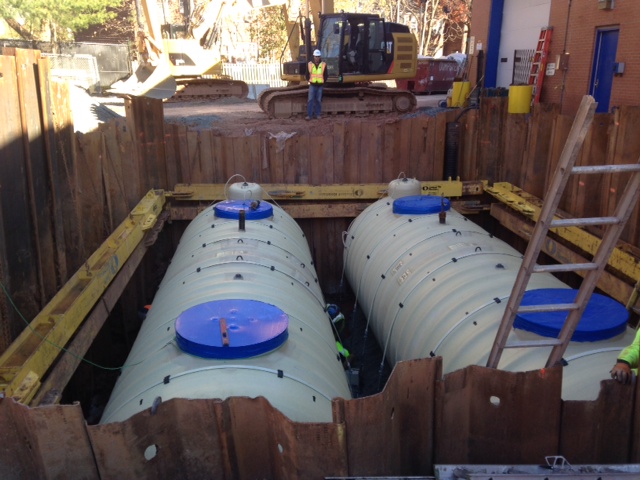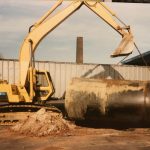Oil Tank Installation NJ Info Guide
Have you been considering replacing your current oil tank and upgrading to a new one? Or have you been actively looking for the right oil tank installation company to convert your home to oil? Oil can be an alternative heat source to your current heating set-up. There are a few options for oil tank installation in New Jersey for those wanting oil as their source of heat. A property owner can elect to go forward with an above ground oil tank or they hide the tank underground. Either option should be executed by oil tank professionals to ensure a proper installation.
Above Ground Oil Tank Installation
To be classified as an above ground oil tank, the tank and all of its components must be above ground. A solid foundation, typically concrete, should be the base of the above ground oil tank. The foundation must keep the tank leveled in order to prevent the tank from tipping over. These tanks have a couple options as they can be an outdoor oil tank or an indoor oil tank.
Outside tanks are exposed to the weather elements of rain, snow, sleet, wind, and heat from the sun. If the outdoor oil tank isn’t protected with a protective coating, corrosion of the tank will occur faster. The corrosion typically starts inside the tank and eventually creates a hole in the tank. An oil leak or spill can be the result. Be sure to schedule regular maintenance to maintain the newly installed outdoor oil tank.
Indoor tanks are more protected from weather elements because they are inside the home. If given the option, it is recommended for homeowners to elect indoor oil tank installation. The tank will last longer and lower the risk of an oil spill. The tank must be placed in an isolated area of the home or building, as a basement is the ideal location.

Underground Oil Tank Installation
Do you wish to hide the oil tank? Then underground oil tank installation is the option for you. In this installation method, both the tank and oil lines are underground. If you are replacing your current tank, test the ground through soil remediation to ensure the new tank is going into an environmentally safe setting.
These tanks aren’t fully protected against corrosion despite being underground. Oil leaks can still occur with underground oil tanks. Any future repairs will require that the ground around the tank be dug out to get to the tank. Frequent inspection is recommended because the eye cannot always detect a toxic leak harming the local ecosystem.
Permits
As with any oil tank installation method that you choose, you may be required to obtain permits. A professional oil tank installation company will have an understanding of which permits will be required and where to obtain them.
Inspections

Every oil tank should be regularly inspected to protect your tank and your local environment. Above ground tanks are easily to maintain as all the components are visible above ground, whereas an underground tank will be trickier. Soil remediation will be required to test the ground for harmful toxins that may be the result of a leaking tank. An inspection should be scheduled after an oil tank has been installed to ensure the installation was a success. Further inspections will notify you that the oil tank is environmentally safe or needs repair.
Trust T. Slack Environmental Services for all of your environmental needs. We are a professional oil tank company in NJ. We have the experience, reputation, and commitment to efficient and economical results to cement our position as an authority in the commercial tank services, residential tank services, and soil remediation business.
We pride ourselves on being today’s solution to yesterday’s pollution. Whether you are considering an above ground oil tank installation or an underground oil tank installation, we are the help you are looking for. Contact us today!




